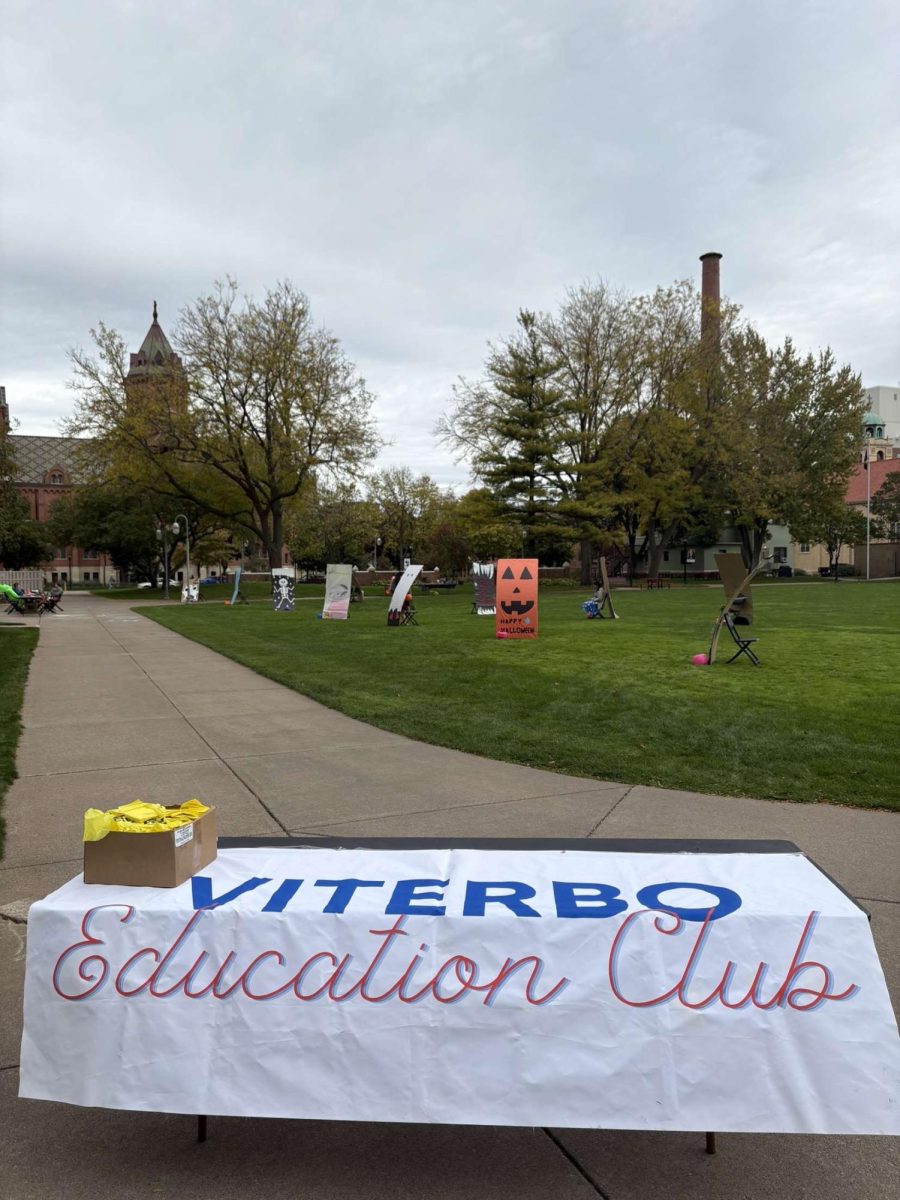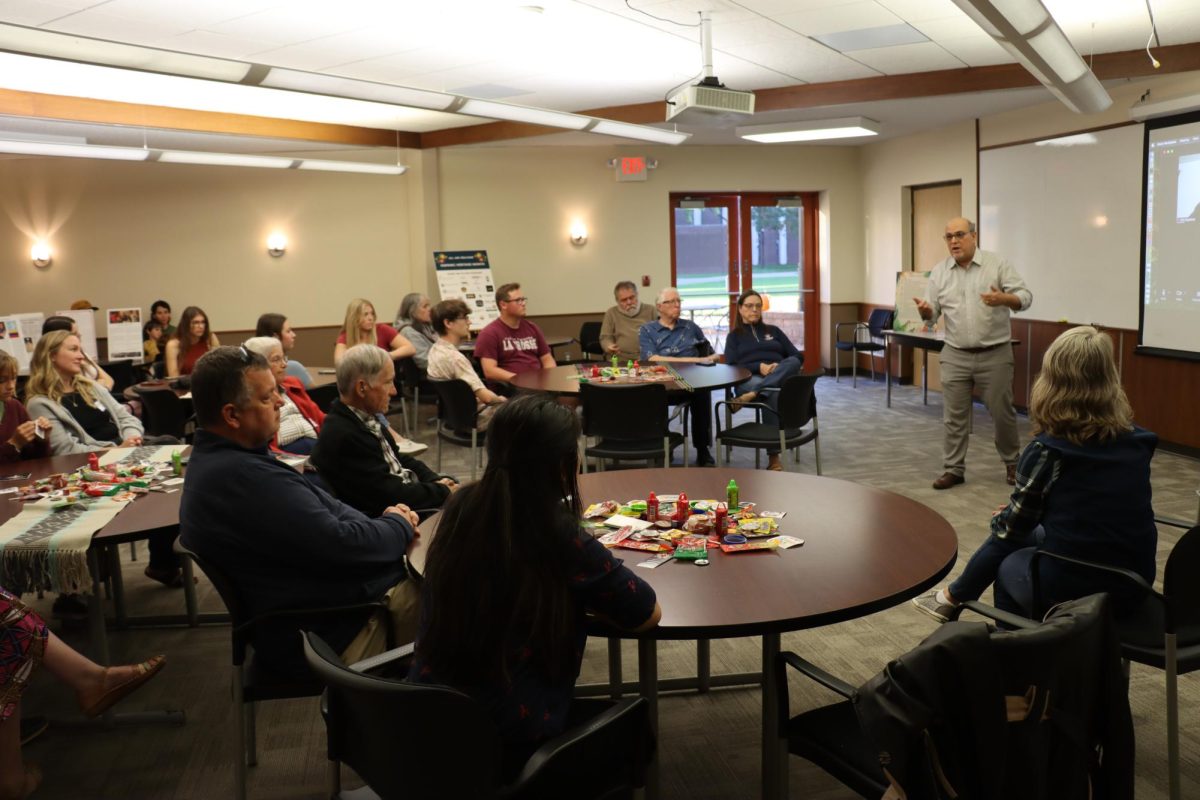On Tuesday, March 9, Megan Pierce, director of International and Intercultural Studies at Viterbo, hosted a civil dialogue entitled “Facts, Fake News, and Clickbait… What’s the Difference?” Part of Viterbo’s Identities Project series and attended by a panel of current and former journalists, librarians and media mediators, the talk focused on the concept of determining when and how we trust the news we consume.
Randy Erickson, external communications coordinator for Viterbo, shared why he thinks it is important we have news and media coverage in general, stating, “People need to be informed so they can have a role in decision making in our society…not just in voting but in advocating in issues that matter to them.” He added that “Being properly informed is sometimes an issue of survival…. and we’re living in one of those times.”
The conversation continued with a discussion of how news has evolved to the point where we can no longer trust it. When asked to define fake news, Kim Olson-Kopp referenced “Something that’s not necessarily true or [has] been manipulated for [the consumer] to think is true.”
The panel went on to discuss how easy it can be to become stuck in a social media echo chamber where we begin to inherently trust the news we see without questioning it, linking much of the production and spreading of fake news to the addicting nature of seeing a story in your social feed. “You can’t trust social media as a source of truth. There’s no truth filter,” Erickson said.
Pierce ended the talk by asking the panel how they recommended students check their news sources and ensure the media they consume is truthful. Maurice Savage, sports editor for the Lumen, said, “When I read an article…I’m always looking for another place that’s reporting that. If I can’t find anything that proves that to be real, I can’t trust it.” Erickson had some more specific advice, saying, “People need to realize that there aren’t many sources of reliable news that are free.” He added, “It’s worth subscribing to a major newspaper like the New York Times, the Washington Post, or the Atlantic.” He finished with a more general warning: “Be skeptical… don’t believe everything you read.”
Pierce had one piece of advice for students looking for reliable news that stood out from the talk. “Only read The Lumen,” she said, jovially. “The Lumen is the only factual thing.”

